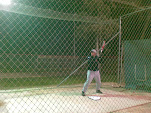I feel bad for those who are not Jewish. I really do.
It has nothing to do with anything like, "Oh, they're more inferior than us" or they aren't, or anything like that. It just has to do with the fact that most of them have never heard of ragulach.
For those of you who don't know what ragulach are, they are danishes, rolled up dough with stuff inside, like chocolate, or cinammon, and the like.
You can get them at the store, but they're not as good then from the bakery. Or your local Shabbos store.
We have a store 2 minutes from yeshiva called "Shefa Shabbat." It's open on Thursdays and Fridays, and every Erev Yomtov, and days like that. Like, during the chaggim, it was open like, practically everyday. And all of Chanuka it was open.
They have food for Shabbos. That's pretty much what it is. They make chulent on Thursday, it's ready by Thursday afternoon (before mishmar, guys go sometimes to have mishmar chulent, and it's sooo good!), shnitzel, stuffed cabbage, potato and lukshin (noodle) kugels. And of course Shabbos nosh candy. And of course, baked stuff, like ragulach. And they make them right there. Which means of course that sometimes when you get there, they are right out of the oven...
You take the tongs, you put some hot ragulach in your bag, you feel your other hand holding the bag get warm. You put in a few more, and your hand gets even warmer. You put in another, and now you burn your hand, and while you smell the aroma of the chocolate and cinammon ragulach, it's the best feeling in the world.
You go to pay; as quickly as possible of course. You get your change and bag, and you're not even a foot away when you reach your hand into the bag and feel the hotness of the sweet ragulach embracing your hand. You take one, put it in your mouth, and feel the exquisite, rich and savory mixture of dough, chocolate/cinammon, (oil?) syrup, all together to form the perfect Shabbos food.
Sometimes though, one isn't luck enough to get hot ragulach, so they get the ones that have cooled off a bit. Over Shabbos they are eaten, but not finished off. After Shabbos, you see there are still some more left, and you reach for one, and you notice that it is still as fresh as it was on Erev Shabbos.
There is a song we sing on Shabbos, and the last stanza starts off as, "Mei'ein Olam Haba, yom Shabbos menucha--Similar to Olam Haba, Shabbos, the day of rest." There is no doubt in my mind that the composer had ragulach in mind in the creating of this song.

